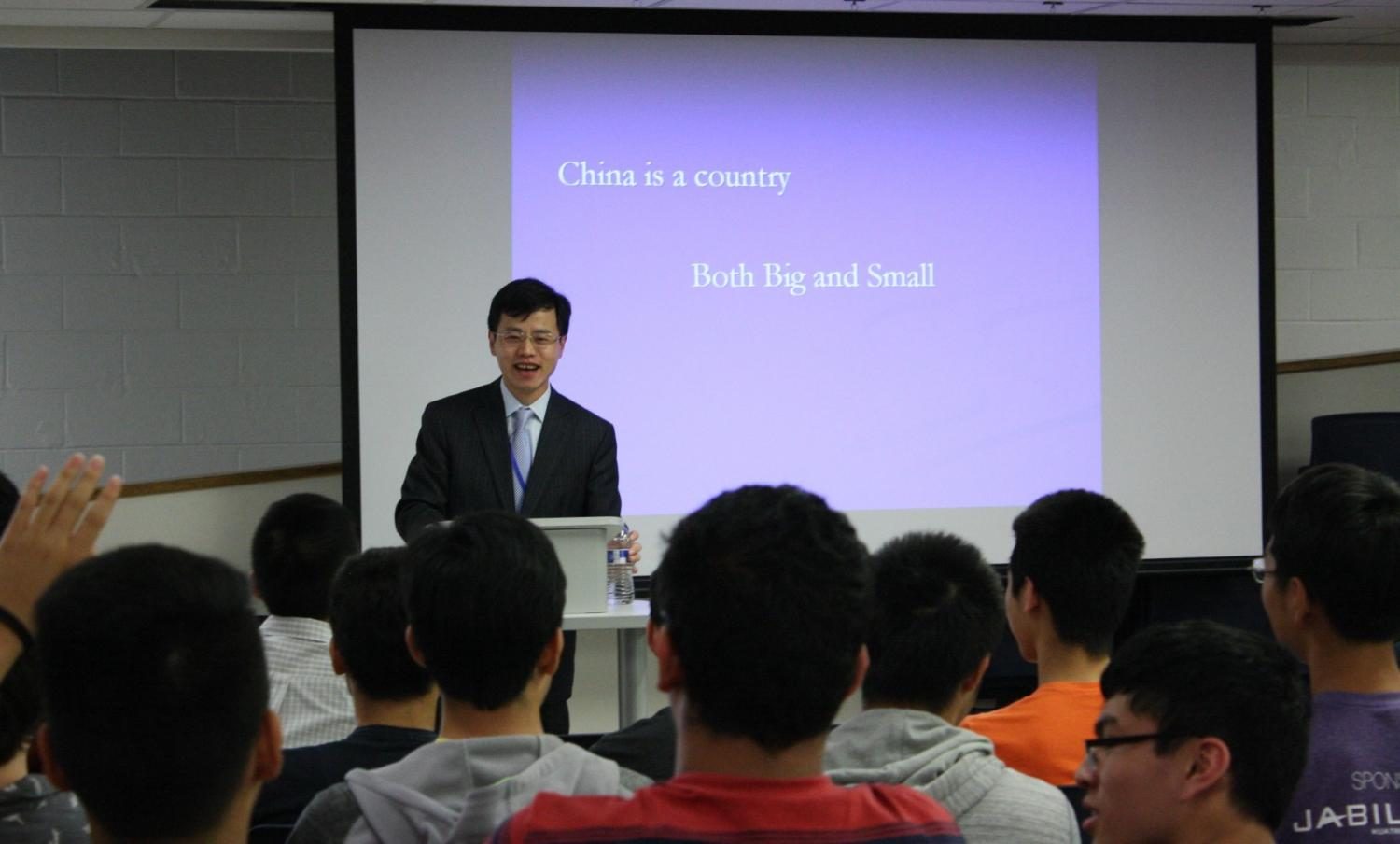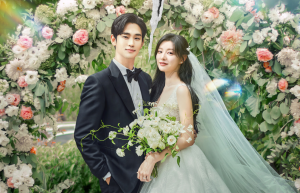Chinese Honor Society invites guest speaker Tang Zhiwen for eighth period presentation
Tang explains the difference between the age of China’s cultural history compared to the youth of its modern political history to students.
May 23, 2017
Smiling, counselor for the Embassy of the People’s Republic of China in America Tang Zhiwen, spoke on how China represents the Chinese people and what they stand for as well as U.S.-China relations during eighth period on May 19. Zhiwen’s lecture included discussion about the development of China as a country- politically, culturally and internationally. Organized by the Chinese Honor Society, this presentation represented the joint efforts of Tang, Chinese Honor Society president Dan Qi, mutual relationships and Chinese Honor Society sponsor Qin Xu.
“I came across this opportunity through some mutual friends and connections, and I reached out, invited him to come speak and he accepted the invitation,” Qi said. “I gave Ms. Xu viewpoints of what I wanted to talk about, mainly China-U.S. foreign relations and educational opportunities in China.”
Initially invited by Xu to attend the presentation, junior Sean Ji ultimately attended because the presentation dealt with topics that frequent current political news.
“I do debate, and this year the topic was about China foreign policy with the U.S., so I thought this is a great opportunity to touch up on it,” Ji said. “I think a lot of statistics about what China is compared to the rest of the world [is interesting]. It could be this huge country, but if you take into account all the other different ethnicities that it can be considered a small independent nation that is unified by one geopolitical body.”
Tang hopes that by students having the opportunity to learn about and get involved with the topic of U.S. and China relations, these high school students will be able to contribute to a causes growing in prevalence today.
“You are the future of our country,” Tang said. “And you are the future of the world. So I think not only do people like us who work in the government need to know about the China and U.S. relations, I think students in university colleges, and even students in high schools [should] know about the topic.’”
According to Tang, many students are starting to immerse themselves in foreign relations in high school; he has observed numerous high school students who are already involved in the topic and are poised to play a role in international relations in the future. Furthermore, Tang is positive about the future growth of China and hopes that more youth today will become interested in learning about Chinese language and culture.
“I hope that parents and kids can learn some Chinese,” Tang said. “Even Ivanka [Trump]’s daughter is learning Chinese, [saying] this is the investment of the future. China is a promising country and a country on the rise. I think there will be more exchanges between China and the U.S. in the days to come. It’ll possibly be inevitable in the future for kids to learn Chinese whether they want it or not.”
In order to stay on top of the ever changing relationship between the U.S. and China, Tang suggests several ways for students and parents to become knowledgeable about this significant topic.
“I think the parents and students need to read more about China,” Tang said. “Not only from American media, but from some other media. Not necessarily from Chinese media- of course Chinese media is okay, but read more about China on various websites.”
In addition, Tang believes immersion of Chinese culture can also help broaden one’s perspective on US and China relations.
“Seeing is believing.” Tang said. “When you’re reading stories from media, it is a story edited by journalists, and that’s something you can’t see. So, visit China as a tourist. Try to persuade your parents or try to earn money yourself to purchase tickets to spend a week in Beijing and Shanghai, and have a look yourself.”






